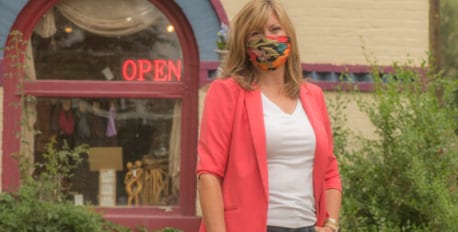Democrats and Republicans alike agree that it’s easy to complain about all the misinformation poisoning our community, but it’s hard to figure out what to do about it.
State Rep. Lisa Cutter (D-Littleton) has been at the forefront of the battle against misinformation since she won her Jefferson County seat in 2018.
Her legislation, which became law last year, brought together community members, educators, journalists, and relevant experts to identify how best to fight the falsehoods that wash over our community–and to report back to the Colorado Department of Education.
With concerns about conspiracy theories and online manipulation on the rise, the Colorado Times Recorder asked Cutter to discuss issues related to media literacy and misinformation.
CTR: Why do you care about this issue?
CUTTER: I believe that most of us want the same things — including protecting the environment, ensuring a good education for our children, having a decent job that pays reasonable wages, for example. I also believe that humans are smart and resourceful. If we can agree on the same basic fact about a situation or issue, then our energy can be spent on solving real problems. This isn’t about perspective — in fact, different perspectives often lead to the best solutions. But if we spend all of our time and mental energy arguing about things that aren’t even true, then we never get to the part where we work together to create meaningful solutions.
CTR: What part of your bill are you most proud of?
CUTTER: I’m most proud that the committee [created by the legislation] was made up of people who would be affected by media literacy education, including administrators, educators, parents and students; as well as experts who were able to offer unique insights, specifically credentialed print and broadcast journalists and librarians. Opinions are fine, but when I evaluate information, I would like to rely on the input and analysis of people who are experts in their field.
CTR: More people seem to be waking up to the danger of online conspiracy theories, with QAnon, and misinformation spreading widely. What are your thoughts on this?
CUTTER: It’s like we are living in two different realities. The people who believe some of this incredibly far-fetched information are responding to “alternative” facts — which are not really facts at all. And in service to this misinformation, they are frequently inciting, and even initiating violence. People advertising any conspiracy theory or sensationalized information generally have an agenda. This agenda is to agitate, divide and confuse us so we don’t know what is true and are no longer capable of thoughtfully evaluating information.
CTR: What can people do?
CUTTER: It’s easy to fall victim to misinformation when we are passionate in our beliefs. It takes thoughtfulness and discipline to create new habits that will help protect us from misinformation. First, I hope people understand that not all media is created equal. Understand what constitutes credible media, which includes having robust editorial and ethics policies and hiring professional journalists who have been trained and educated in their craft. It is also important to question your own bias. If you are quick to embrace a headline that reinforces a positive or negative belief you hold, stop and question it! Do a quick search to see if three or more varied and credible sources are reporting on it and visit a fact-checking site (there are several). Additionally, I very rarely watch cable news. The 24-hour cable news cycle means that much of the content aired is simply “experts” pontificating on news. That’s not news — that’s people’s opinions about news. And we all should be responsible in sharing news on social media or even in conversation. People tend to believe things when passed on by a trusted source, so I am very mindful about not perpetuating false information.
CTR: Do you plan to keep working on it?
CUTTER: I will definitely continue working on media literacy. Along with my colleague, Representative Barbara McLachlan, I’ll be reintroducing the second piece of media literacy legislation, which will require the report created by the Media Literacy Advisory Committee be used to implement media literacy into Colorado’s K-12 educational standards in the areas of reading, writing and civics. I will also continue to speak on this subject to students and other interested groups.
CTR: And any other comments?
CUTTER: I want to be clear; media literacy education is not about teaching children how or what to think. It’s about helping them critically evaluate information so they are free to form their own opinions about it information that is grounded in fact. I believe this is a fundamental part of our democracy — good information allows us to hold those in power accountable.
The post Rep. Lisa Cutter on Why She’s a Leader in the Fight Against Misinformation in Colorado appeared first on Colorado Times Recorder.
This content was originally published here.

